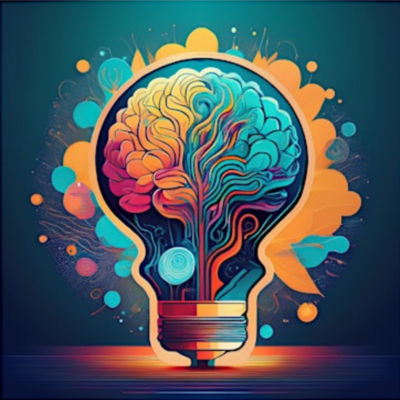Teaching
We conduct research on the intersection between digital entrepeneurship, digital ecosystems, and organizing data and knowldedge. We will provide multiple courses that help to explain changes on firm- and ecosystem levels using multiple theories and methodologies. Our teaching is usually highly interactive and builds upon concepts of blended learning, oftentimes 'flipping the classroom'. It is important to us to not only reflect latest findings of information systems research with our students but also to work together on applying that knowledge.
Our teaching extends to Bachelor, Master, PhD and Postdocs. Offers for PhD and PostDocs will be more clearly defined in the following months.
Winter 25/26

Innopreneurship Challenge
- Dozent:
 Marvin Mathis , M.A.
Marvin Mathis , M.A.  Prof. Dr. Hannes Rothe
Prof. Dr. Hannes Rothe - Semester:
- Winter Semester 2025/2026
- Raum:
- Place Beyond Bytes
- Beginn:
- 15. Oct. 2025
- Ende:
- 28. Nov. 2025
- Sprache:
- German
Wichtige Hinweise:
In order to produce a more sustainable future, companies and public institutions need to fundamentally change the way they conduct business or the way they operate. The Innopreneurship Challenge marks the entry point into the Innopreneurship master program. Students face a real-world challenge of sustainable transformation and learn to develop initial solutions. Thereby, students gather first-hand experience about problems that they might face during their master program and in their future career. This seminar is developed in partnership with a local partner institution from industry or a non-governmental organization. It offers practical insights into sustainable transformation in of real-world organizations. With a focus on hands-on learning, this course provides students with the skills and experience necessary to drive sustainability in the business world. |
Beschreibung:
The course focuses on the development of sustainable futures, where economic growth and prosperity are aligned with ecological and social responsibility. In this context, companies provide real-world challenges from their organizational environment, ideally linked to issues of ecological, economic, or social sustainability. Students work in teams to address these challenges through a structured Design Thinking process.
Throughout the course, students engage in the phases of Design Thinking to understand the problem space, gain user insights, define a core problem, ideate possible solutions, prototype and test. The goal is to achieve a Problem–Solution Fit and initiate a concrete project or intervention that contributes to the sustainable transformation of the organization.
A wide variety of Design Thinking tools and methods are applied along the process. The course culminates in a final presentation in front of the challenge-providing organizations, where students communicate their insights and propose their solution concepts.
By engaging with the case studies the students are enabled to develop innovative approaches to corporate problem solving by acquiring entrepreneurial heuristics, methods and applying design thinking methods based on their prior interdisciplinary knowledge.
Representatives from academia and practice complement the learning process with diverse perspectives to both the problem and solution dimension of sustainable management. Through this approach, a sound understanding of problem solving is built and the students are enabled to examine the usefulness and feasibility of the solution approaches developed.
Qualifikationsziele:
After the successful completion of this course, students are able to
- conceptualize tasks as a project, structure and plan them and work on them in interaction with other project members,
- organize and structure a team around a project,
- communicate and coordinate well with clients in a cooperative project,
- use digital and non-digital tools and aids sensibly in the course of the project,
- document the course of the project in a comprehensible manner,
- learn to apply digital and non-digital tools in idea development and innovation processes and for team work and organization,
- bring a project to a successful conclusion,
- pitch ideas and present project results,
- reflect on the impact of a project on an individual, project, organizational, and ecosystem level
Gliederung:
The course follows a challenge-based learning approach that involves a high level of interactions between students and lecturers over the course of four weeks. Following initial input by lecturers and partners, students engage in self-active learning and learning through experience and practice. The course involves expansive teamwork. Regularly, students are guided through mentoring and critical reflection sessions.
Prüfungsart:
Presentation & written Report
New Policy on LLMs and Transparency in Work Creation
We are implementing a new policy to ensure transparency and clarity in the creation of student works, especially those involving Large Language Models (LLMs) like GPT. This policy applies to all works, including seminar papers, thesis, and project reports, and is designed to foster academic integrity, rigor, and replicability in your research.
Key Changes:
- All works must present a clear and transparent account of the methods and tools used in their creation. This includes documenting any use of AI or LLMs in the process.
- When LLMs are used, students are required to submit the complete chat history. This includes both the prompts given to the LLM and its responses. Students should ensure that they use a single chat session, save it in its entirety, and send it separately along with their work. This will provide a comprehensive record of how the work was generated.
- In the methods chapter of your work, there must be a specific sub-chapter detailing the tools and methods used to support your writing and study. This is to ensure that all methods, including AI-based tools, are fully explained and their role in the creation process is clear.

